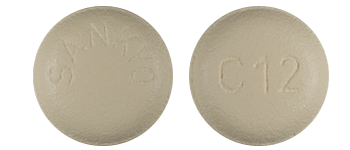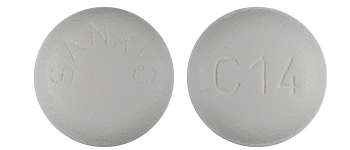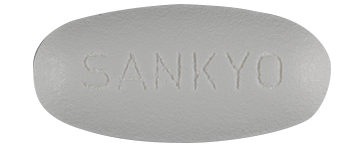Benicar
Displaying 1 to 3 of 3 entries
Benicar
Benicar is a prescription blood pressure medication manufactured by Japanese drugmaker Daiichi Sankyo. Its active ingredient is olmesartan medoxomil, which is available as a generic formulation. The medication belongs to the angiotensin II receptor blocker, or ARB, drug class and works by blocking a hormone called angiotensin II, which causes blood vessel constriction and high blood pressure.
The U.S. Food and Drug Administration first approved brand name Benicar in 2002 to treat high blood pressure. Then in 2003, it approved Benicar HCT — a drug that contains both olmesartan with hydrochlorothiazide, a blood pressure drug from the thiazide diuretic drug class.
In clinical trials, one 20 mg dose of olmesartan reduced blood pressure by about 10/6 mmHg and 40 mg reduced it by about 12/7 mmHg.
Millions of Americans use Benicar and its generics each year.
Olmesartan medoxomil is one of the top 300 most prescribed drugs in the United States in 2017 with over 2 million prescriptions, according to the U.S. Department of Health and Human Services’ most recent Medical Expenditure Panel Survey data.
The combination of olmesartan medoxomil and hydrochlorothiazide was also in the top 300 most prescribed drugs in 2017 with over 1 million prescriptions.
What Does Benicar Treat?
Benicar is indicated for the treatment of hypertension, also known as high blood pressure. It is used to lower blood pressure.
Blood pressure rises as blood vessels constrict. While it’s normal for blood pressure to rise and fall throughout the day, health problems can develop for individuals whose blood pressure remains high for a longer period of time.
Blood pressure is measured by two numbers. The first number, referred to as systolic, represents pressure when the heart beats and is the higher number. The second number, referred to as diastolic, is the pressure when the heart rests in between beats. The blood pressure value is expressed as systolic over diastolic. For example, a systolic of 120 and diastolic of 80 is written as “120/80 mmHg”. A normal blood pressure is less than 120/80 mmHg.
When left unchecked, elevated blood pressure levels greatly increase a person’s risk for heart disease and stroke, leading causes of death in the United States. High blood pressure usually has no accompanying symptoms, so many people are unaware that there’s even a problem.
The Centers for Disease Control and Prevention estimated that 75 million adults have high blood pressure in the United States. It affects approximately one in every three adults.
Just over one half of individuals with high blood pressure are controlled. Seven in 10 of those adults with high blood pressure are taking a blood pressure medication. These individuals are sometimes prescribed a medication such as Benicar or a medication containing the ingredient olmesartan.
For patients suffering from high blood pressure, taking a medication for control, such as Benicar, can reduce the risk of heart attack and stroke.
Who Should Not Use Benicar?
Benicar can result in complications for fetuses, especially in the second and third trimesters, and some of these complications can be fatal to the fetus. Also, the drug should not be utilized in children under one, as it can negatively affect growth and development of the kidneys. Other individuals can experience adverse reactions when taking Benicar.
Benicar is not recommended for the following people:
- Pregnant women
- Nursing mothers
- Children under one year of age
- Patients with blood volume or salt depletion (a lower starting dose should be utilized)
- Patients with stiffening of renal arteries (also called renal artery stenosis)
Benicar Side Effects
The most common Benicar side effect is dizziness. Serious and less common side effects include facial edema (known as angioedema), high potassium levels (also known as hyperkalemia), low blood pressure (known as hypotension), and decreased kidney function.
Also, in 2013, the FDA released a safety announcement warning the public that Benicar has the potential to cause intestinal problems known as sprue-like enteropathy. Symptoms of drug-induced sprue-like enteropathy include severe, chronic diarrhea and substantial weight loss within months to years after beginning use of the medication.
Benicar can also result in fetal toxicity and is not recommended for women who are pregnant. Benicar should be discontinued as soon as possible when pregnancy is detected.
Common Side Effects (>1 percent occurrence)
- Back pain
- Bronchitis
- Increase of creatinine phosphokinase (CPK)
- Diarrhea
- Headache
- Blood in urine
- High blood sugar
- Elevated triglyceride levels (fat in the blood)
- Flu-like symptoms
- Inflammation of pharynx or back of throat
- Inflammation of mucous membrane inside the nose
- Sinusitis
Less Common Side Effects (<1 percent occurrence, postmarketing reports)
- Chest pain
- Fast heart rate
- Peripheral edema
- Weakness/lack of energy
- Vertigo
- Abdominal pain
- Indigestion
- Diarrhea
- Nausea
- High levels of cholesterol in blood
- High concentration of fats in blood
- Excess levels of uric acid in blood
- Decreases in hemoglobin and hematocrit level
- Elevations of liver enzymes and/or serum bilirubin levels
- Increased blood creatinine levels
- Joint pain
- Arthritis
- Muscle pain
- Rhabdomyolysis (a condition causing destruction of skeletal muscle)
- Rash
- Acute kidney failure
- Hair loss
Black Box Warning – Fetal Toxicity
A black box warning appears on a prescription drug’s label when the FDA wants to call attention to serious or life-threatening risks associated with its use. Benicar (olmesartan medoxomil) contains one of these warnings for fetal toxicity. The label says Benicar should be discontinued as soon as possible after pregnancy is detected. This is because olmesartan acts directly on the renin angiotensin system (a system in the body that regulates blood pressure), which can cause injury and death to the developing fetus.
The label says the risks are greater during the second and third trimesters. The risks include reduction of fetal renal function and increase in fetal and neonatal death.
This could lead to a decrease in amniotic fluid and result in fetal lung underdevelopment and skeletal deformations.
Potential neonatal adverse effects include:
- Skull underdevelopment
- Failure of kidneys to produce urine
- Low blood pressure
- Kidney failure
- Death
Benicar Dosages
Benicar comes in tablet form in three different prescription strengths: 5 milligrams (yellow/round pill), 20 milligrams (white/round pill), 40 milligrams (white/oval). This drug can be taken with or without food, and it can also be administered with a diuretic and/or other antihypertensive medications.

5 mg (yellow/round pill) dosage

20 mg (white/round pill) dosage

40 mg (white/oval) dosage
Dosage Information for Adults
- Recommended starting dosage of 20 milligrams once daily
- If further blood pressure reduction is required after two weeks of taking Benicar, the provider may increase the dose to 40 milligrams.
- Doses above 40 milligrams have not been shown to have any greater effect in patients.
- Twice-daily dosages do not appear to offer any advantage over the same total dose taken once daily.
Dosage Information for Children
- Dosing must be individualized
- Recommended starting dosage in children 6 years of age and older and weighing 44 to 77 pounds is 10 milligrams once daily
- If further reduction in blood pressure is required after two weeks of taking Benicar, the provider may increase the dose to a maximum of 20 milligrams once daily for those weighing under 77 pounds
- If further reduction in blood pressure is required after two weeks of taking Benicar, the provider may increase the dose to a maximum of 40 milligrams for those weighing over 77 pounds
- For children who cannot swallow pills, Benicar may be taken as a suspension.
Drug Interactions with Benicar
It is possible for Benicar to cause adverse reactions when taken concurrently with certain drugs (both prescription and nonprescription). These adverse reactions may include unfavorable side effects and/or decreased effectiveness of Benicar or the other drugs.
Drugs that Interact with Benicar
Aliskiren (Brand Name – Tekturna):
It is recommended that Benicar is not given in conjunction with aliskiren (antihypertensive drug) in patients with diabetes.
NonSteroidal Antiinflammatory Drugs (NSAID) including Selective COX-2 inhibitors:
Taking Benicar with NSAIDs, a type of pain medication including ibuprofen (Motrin) or naproxen (Aleve), can lead to decreased kidney function. Taking NSAIDs can also decrease the effects of Benicar.
Dual Blockade of the Renin-Angiotensin System (RAS):
Taking Benicar with other ARBs, ACE (angiotensin-converting enzyme) inhibitors (such as Captopril, Ramipril, Lisinopril, Quinapril and others) or aliskiren is associated with increased risks of low blood pressure, high potassium and changes in kidney function.
Colesevelam Hydrochloride (Brand Name – Welchol):
Taking colesevelam hydrochloride with Benicar reduces the effectiveness of Benicar. It is recommended that olmesartan is taken at least four hours prior to taking a dose of colesevelam hydrochloride in order to decrease the effect of the drugs’ interaction.


